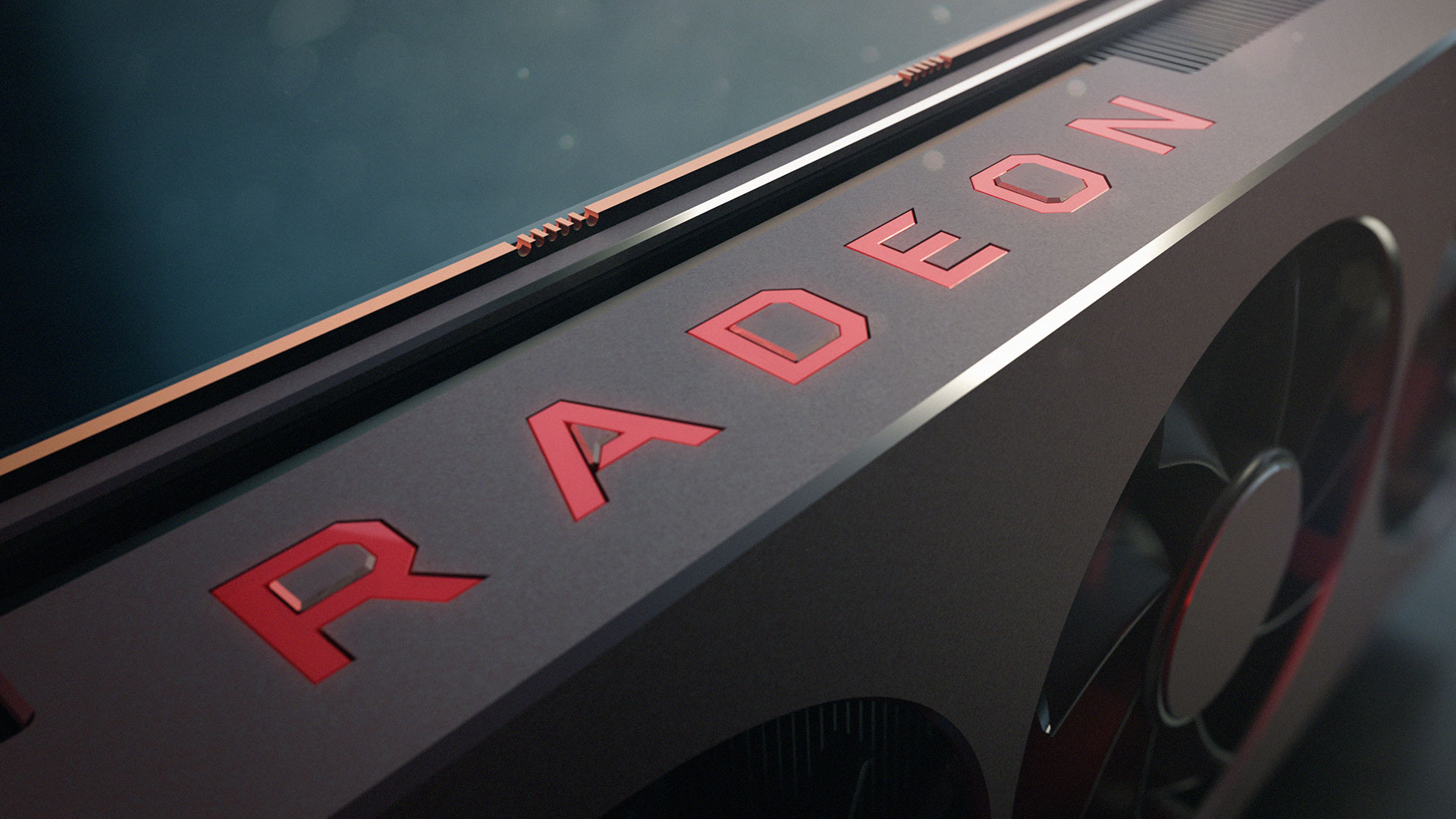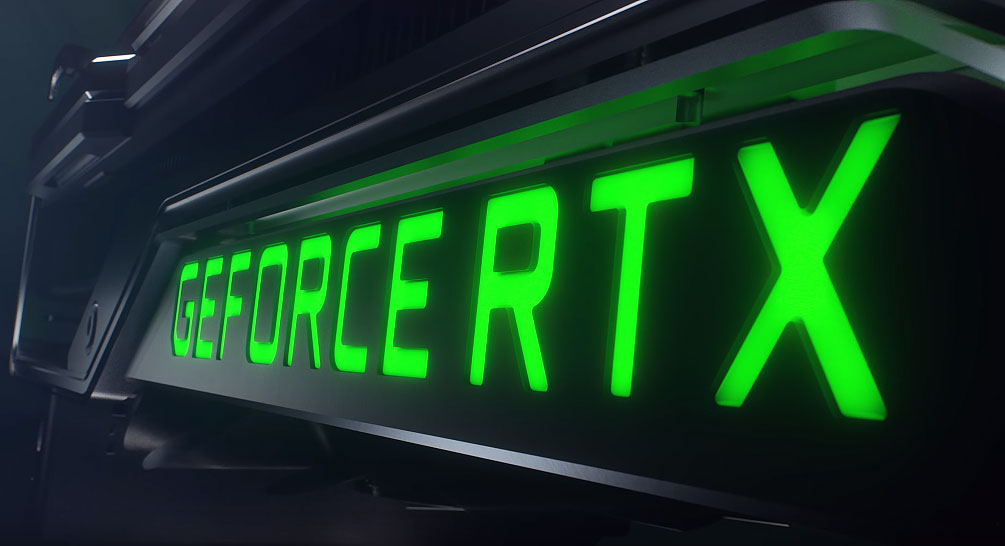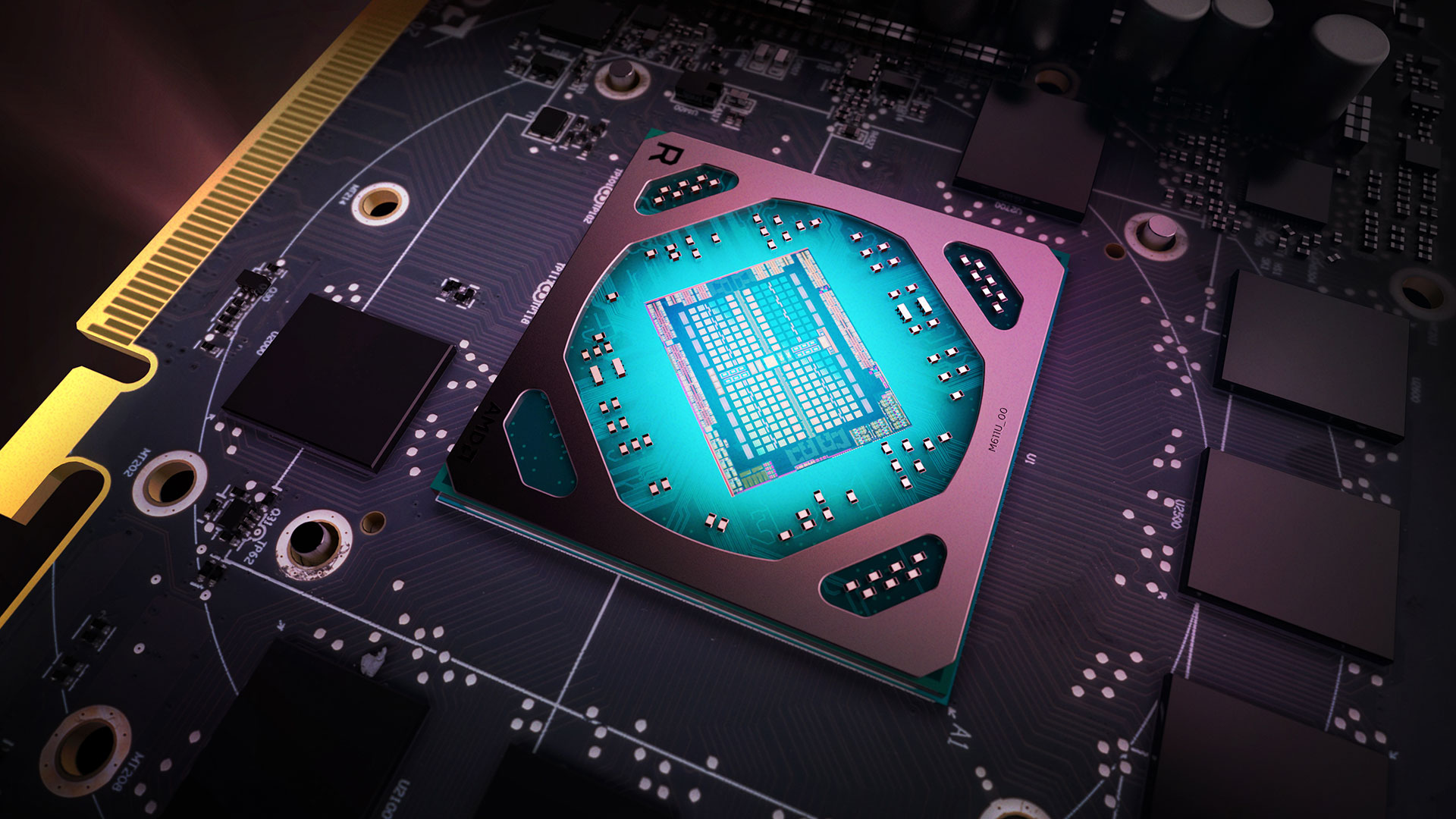AMD and Nvidia's next fight could be over the number 3080
Will the real 3080 GPU please stand up?

Update: And with the official announcement of the Radeon RX 5700 and the RX 5000 series branding at Computex during Dr. Su's keynote, this story comes to a sudden and far less confusing end. RX 3080 XT is out, if it was ever even in consideration. Word to the wise: don't ever fully believe any 'leaks' that come out months in advance (especially if they contain pricing information). That doesn't change the fact that Nvidia did in fact apply for trademarks on several model numbers, however. Original story follows below:
Coming up with good product names can be difficult. Use the right name and you become the de facto standard bearer for a whole industry—just look at Band-Aid, Kleenex, and Coke. For graphics cards, brands like Radeon and GeForce perhaps didn't set the world aflame at first, but over the past couple of decades they've become entrenched in our computer hardware lingo alongside the best AMD motherboards. Competition between AMD and Nvidia is fierce, but even so I can't help but raise an eyebrow when looking at the rumors for AMD's next-generation Navi GPUs, which point to a supposed RX 3080 XT branding. Throw in recent trademark filings from Nvidia, and AMD could land in a legal quagmire if it continues down the RX 3000 path.
Officially, we don't know what AMD's Navi GPUs will be called yet—we likely won't find out until Computex or E3, when they're unveiled. Unofficially (as in, take this with a huge grain of salt), going back as far as December 4, 2018, a leak from AdoredTV said that both AMD's future Ryzen CPUs and Radeon GPUs will use 3000-series branding. I'll be honest and say I thought initially the Radeon 3000 branding was bunk, as it felt far too petty. Would AMD really go and try to brandjack Nvidia's future RTX 3000 series? And what happened to RX 600/700/800/900—there's at least four more generations of current naming available.
Perhaps AMD just wants to get its Ryzen CPUs and Radeon GPUs on similar model numbers. It's certainly not out of the realm of possibility. Over the last six months, however, the Radeon 3000 rumors have continued to gain traction. I can't say if that's because these rumored names exist in an echo chamber—most sources seem to eventually point back to AdoredTV—or if AMD is seriously planning on RX 3060/3070/3080 model numbers. Either way, RX 3080 branding could pose some serious confusion, and problems—especially considering what we know about Nvidia's next move.

The Nvidia side would normally be far less certain. Take the GeForce RTX 2000 model numbers, which only surfaced a few weeks before the official announcement last August. Before that there was a lot of debate, rumors, and "leaks" about GTX 1180/1170, or GTX 2080/2070, and we all know how that turned out. Many have assumed Nvidia's will stick with increments of 1000 for its model numbers for the next eight generations, so RTX 3080 will be the next big jump whenever it arrives, but that's just an educated guess—or at least it was.
That changed on May 1, 2019, when Nvidia filed for trademarks in europe not just on 3080, but on 4080 and 5080 as well. You can see the details on Nvidia's EUIPO profile, which don't really say much other than those model numbers. So there's no 3070 or 3060 trademark application, and no RTX either, just the 3080/4080/5080 numbers. It's also worth noting that the applications are currently under examination, so no trademarks have been granted yet, but the filings do raise some interesting questions.
Is AMD 'brandjacking' the 3000 series model numbers for its GPUs? And is Nvidia responding by doing some 'brandsquatting' in advance, filing trademarks potentially years in advance? To my knowledge, Nvidia hasn't taken this approach before—the GeForce RTX trademark application was submitted on August 2, 2018 for instance, just weeks before the unveiling at Gamescom. Maybe RTX 3080 will be coming far sooner than expected (I wouldn't count on it), but the fabled RTX 4080 and RTX 5080 are at best years away.
The biggest gaming news, reviews and hardware deals
Keep up to date with the most important stories and the best deals, as picked by the PC Gamer team.
Shockingly, I even received a comment from Nvidia when I asked about the 3080/4080/5080 trademark applications and why they were filed. The response: "Our GeForce RTX 2080 GPU followed the GTX 1080, so of course we filed trademarks for names that continue this cadence." Of course. Naturally. Except I couldn't find any trademark applications for the previous GeForce model numbers, only specific brands like 'GeForce RTX,' 'GeForce GTX,' and even the old 'nVIDIA geFORCE2GO.' If AMD is hoping to rile Nvidia's feathers by setting up camp on the 3000 series, perhaps it's working.

It's worth pointing out that these sorts of naming shenanigans aren't exactly new, either. Prior to its current Ryzen CPUs, AMD processor models consisted of markedly different numbers—there were FX 4000/6000/8000 parts, and A4/6/8/10 APUs, different chipset names, etc. Then with Ryzen, AMD revealed the 3/5/7 branding that's similar to Intel's Core i3/i5/i7. But the chipsets are where things got particularly silly.
Intel was on 200-series parts when Ryzen launched, and AMD came out with 300-series chipsets (X370/B350 mainly), a full 100 points better than Intel! When Intel rolled out its own 300-series parts, it used B360 just to avoid a name collision with AMD. Then Intel had the X299 chipset for its HEDT (high-end desktop) LGA2066 platform, and AMD again came out 100 points ahead with the X399 chipset for Socket TR4 / LGA4094.
It can go the other way as well, of course. ATI released the Radeon 9800 (and other 9000-series parts) in 2002-2003. Nvidia didn't get to its GeForce 9800 GTX until April 2008—by which point the Radeon 9800 Pro had been largely relegated to the scrap heap of history. Or there's AMD's HD 2000-8000 branding that was around from 2007-2013, with Intel's HD Graphics 2000/3000 showing up in 2011 and continuing through the HD Graphics 5500 in 2015 before Intel eventually dropped the extra zero and added a U, giving us today's UHD Graphics 630.
Will AMD and Nvidia end up fighting over the 3000 series branding? Can both companies use the same model numbers? And if not, who 'wins' this fight? These are all legal questions, which means the answer will inevitably be far above my pay grade. Trademarks are usually given on a first come first served approach, however, which means Nvidia could very well end up with trademarks on 3080, 4080, and 5080. And knowing Nvidia, I fully expect it would wield those trademarks against any encroachment.

All of this uncertainty and legality goes away if AMD reveals different branding for its Navi GPUs when they're shown off and launched in the next month or two. That could very well be the best route, and I've secretly been hoping this turns out to be the case. No savvy gamer is going to 'accidentally' buy an AMD Radeon RX 3080 XT when what they really wanted was an Nvidia RTX 3080, and leapfrogging from the RX 500-series to the RX 3000-series just to put CPUs and GPUs on similar model numbers doesn't win any points in my book. What will win points is performance, efficiency, features, and perhaps most importantly pricing.
Ultimately, I want Navi to be good, and I want it to stand on its own legs—without any model number controversy, please. Give me a Navi GPU that costs $300 and performs as well as an RTX 2070, and with or without ray tracing I'll be happy to recommend it. I don't care if AMD calls it the RX 680, RX Navi 56, or something else—I'm interested in the hardware and the value proposition. Or AMD can go with the rumored RX 3080 XT name, but I won't be surprised if Nvidia's lawyers come knocking.
Jarred's love of computers dates back to the dark ages when his dad brought home a DOS 2.3 PC and he left his C-64 behind. He eventually built his first custom PC in 1990 with a 286 12MHz, only to discover it was already woefully outdated when Wing Commander was released a few months later. He holds a BS in Computer Science from Brigham Young University and has been working as a tech journalist since 2004, writing for AnandTech, Maximum PC, and PC Gamer. From the first S3 Virge '3D decelerators' to today's GPUs, Jarred keeps up with all the latest graphics trends and is the one to ask about game performance.


